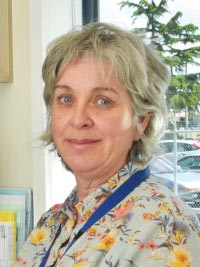
Renal transplant co-ordinator at Hawke’s Bay District Health Board Merryn Jones said she was motivated to organise the hui because of the particular issues Māori faced regarding kidney donation, including unmet need and very low transplant rates. In 2017, there were 187 kidney transplants in New Zealand, with 23 Māori recipients – 12 per cent of the total. Of those 23, 17 received a kidney from the donor list and six received a kidney from a living donor.
The hui had a tikanga focus, was nine months in the planning and, because of appalling weather on the day, was attended by 80 people, rather than the 100 who had registered. Speakers included a nephrologist who gave the context for a transplant, and a pain and palliatve care specialist, who talked about the difficult conversations with whānau at the bedside. A mother told of her decision to donate her son’s organs and Jones said there wasn’t a “dry eye in the house” at the end of the presentation.
A small survey of 52 health professionals working in the Hawke’s Bay Regional Hospital intensive care unit found only four to five per cent were comfortable talking with Māori whānau about organ donation.
Another speaker talked of receiving a kidney from a deceased donor in 2011 and how his seven brothers had all died of unmanaged co-morbidities in their 40s and 50s.
A researcher from the Eastern Institute of Technology spoke of his research into indigenous perspectives on kidney transplantation.
Many of those at the hui disliked the term “deceased organ donation” and suggested alternatives such as gifting, recycling or rekindling. They wanted expressions to convey the sense that gifted kidney was a taonga. Others spoke of the journey involved in donating a kidney to a family member. A nurse practitioner talked about the care and support for patients post-transplant, the lifestyle changes people faced, and the need for a high fluid intake, to be sun smart and to take medications twice daily.
Jones said the hui had generated great discussion about organ transplants and there had been tears and laughter as people shared their stories in a safe environment.
“This project was significant on many levels. It was the first such hui in Aotearoa for Māori health-care providers and influencers. It raised awareness of an issue that disproportionately affects Māori, and upskilled those who attended to better support our patients on their difficult journey to transplant conversations.”



